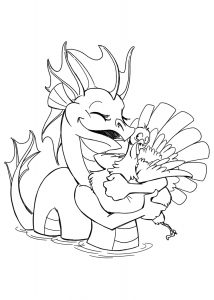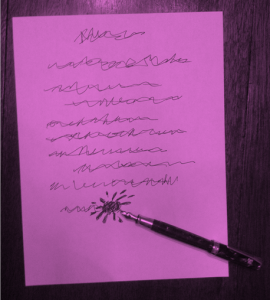Every year, the science fiction conference Chessiecon offers an award, called the Chessiecon Turkey Award. The idea is to write the “worst possible opening to the worst possible SF/F novel (n)ever written.” It’s a SciFi version of the Bulwer-Lytton Fiction contest.

I submitted an entry this year for the first time. As I was leaving the con, one of the Turkey Award judges told me I’d won second worst place! I couldn’t believe it.
Before I unveil my entry, please have all children at least exit the room, or preferably, the solar system. This entry is suggestive, racy, and risqué, but not necessarily in that order. Are all the kiddies gone? Good.
With apologies to H.G. Wells, here’s what I submitted:
“No one would have conceived in the last months of 2018 that this world was being debauched obscenely by protuberances straighter than man’s, as thoroughly as a man with a proctoscope might sodomize the prurient lechers in a tub of water. Yet across the gulf of space, inter-sexuals fast and cool and un-prophylactic regarded this earth with lascivious eyes, and Roly and Shirley spewed from their glands against us.”
Hmmm. I guess you’d have to call that novel Whore of the Worlds, or something. Good thing for humanity that nobody wrote that book. Ever.
Pictured below is the prize I won for getting second worst place. You guessed correctly; it’s the Flickin’ Chicken game, rated for ages six and above. My wife says I might be mentally old enough to play it next year. Yay!

On the package it says it’s “The Go Anywhere Game,” which is handy, because I won’t need a passport anymore.
It is my high dishonor to accept this “award.” I’d like to take this opportunity to blame all the people who helped me along the way, including my parents, my teachers, and H.G. Wells.
To all those who said, “Steve, don’t enter that bad-writing contest; you’re not immature or unskilled enough,” I say, “nyah, nyah, nyah-nyah, nyah. I am too. Thphthph.”
Besides, you doubters, who’s got a firm grasp of his Flickin’ Chicken now? I’ll tell you who, it’s—
Poseidon’s Scribe

 Since that description is rather subjective, I prefer the simpler version provided by
Since that description is rather subjective, I prefer the simpler version provided by